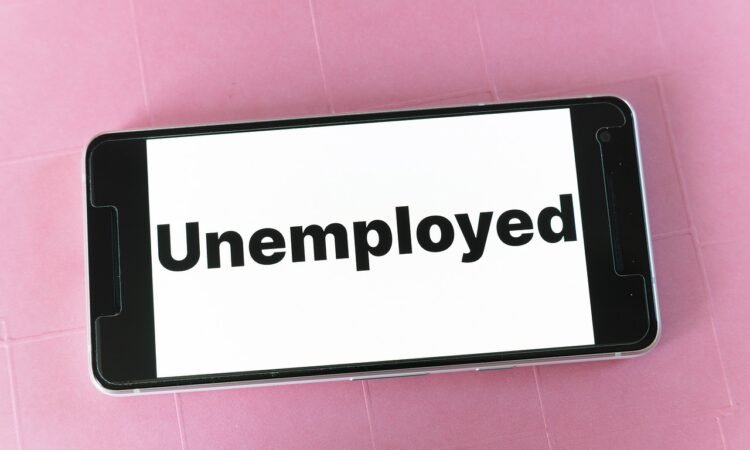What is the south African government doing about the unemployment rate?
South Africa has one of the highest unemployment rates in the world, with 32.7% of the labour force actively looking for a job in the fourth quarter of 2022. This is a slight improvement from the previous quarter, when the unemployment rate was 32.9%, but still far from the pre-pandemic level of 29.1% in the third quarter of 2019.
The unemployment rate is even higher among the youth, who face a staggering 61% unemployment rate in the fourth quarter of 2022. This means that more than half of the young people between 15 and 24 years old are not employed, not in education and not in training.
The Covid-19 pandemic has worsened the already dire situation of the labour market, as many businesses had to close or reduce their operations due to lockdown restrictions and reduced consumer demand. The pandemic also exposed the structural weaknesses of the economy, such as low growth, high inequality, poor education and skills, and inadequate infrastructure.
The south African government has acknowledged the urgency of addressing the unemployment crisis and has announced several measures to stimulate job creation and economic recovery.
Some of these measures include:
- The Presidential Employment Stimulus, which aims to create or support over one million jobs in various sectors such as education, health, agriculture, arts and culture, and public works.
- The Economic Reconstruction and Recovery Plan, which focuses on boosting infrastructure investment, expanding energy generation capacity, supporting industrialisation and localisation, promoting small businesses and cooperatives, and enhancing social protection.
- The Youth Employment Service (YES) initiative, which partners with private sector employers to provide work opportunities and skills development for young people.
- The Expanded Public Works Programme (EPWP), which provides short-term employment and training for unemployed people through labour-intensive projects that deliver public goods and services.
- The National Minimum Wage (NMW), which sets a floor for wages and aims to reduce poverty and inequality among low-paid workers.
These are some of the initiatives that the south African government is implementing or planning to implement to tackle the unemployment rate. However, these measures alone are not enough to solve the complex and long-standing problem of unemployment.
The government also needs to address the underlying causes of unemployment, such as low economic growth, poor education and skills development, rigid labour regulations, corruption and mismanagement of public funds, and lack of social cohesion and trust.
Only by working together with all stakeholders, including the private sector, civil society, labour unions and international partners, can the government achieve its vision of a more inclusive, resilient and prosperous society.
the Presidential Employment Stimulus, which was launched in 2020, includes various programs such as the Basic Education Employment Initiative, the Health Employment Initiative, and the Early Childhood Development Employment Initiative. These initiatives aim to address the urgent need for more teachers, healthcare workers and early childhood development practitioners in the country.
The Economic Reconstruction and Recovery Plan, launched in 2020, is a long-term strategy aimed at revitalizing the economy, creating jobs, and reducing poverty and inequality. It includes various interventions such as infrastructure investment, energy reform, and support for small and medium-sized enterprises.
The Youth Employment Service (YES) initiative was launched in 2018 to address the high youth unemployment rate. The program aims to create one million work opportunities for young people by 2026, through partnerships with private sector employers. The program also provides training and skills development for young people to increase their employability.
The Expanded Public Works Programme (EPWP) has been in place since 2004 and has created millions of short-term jobs for unemployed people. The program focuses on labour-intensive projects that provide public goods and services, such as road maintenance, community cleaning, and environmental conservation.
The National Minimum Wage (NMW), implemented in 2019, is intended to protect low-paid workers and reduce poverty and inequality. The NMW sets a minimum wage of R21.69 per hour, which is higher than the previous sectoral determinations.
The government has also launched several other programs aimed at supporting job creation and economic growth, such as the Black Industrialists Programme, the Industrial Parks Revitalisation Programme, and the Automotive Production and Development Programme.
In addition to these initiatives, the government has also emphasized the importance of improving the education and skills development system in the country. The National Skills Development Strategy, launched in 2021, aims to create a more responsive and effective skills development system that meets the needs of the economy and society. The government has also invested in expanding access to higher education, through initiatives such as the National Student Financial Aid Scheme.
Overall, while the South African government has implemented various initiatives to address the unemployment crisis, the situation remains challenging. The COVID-19 pandemic has further highlighted the urgent need for more concerted efforts to create jobs and stimulate economic growth. It will require sustained collaboration and innovation across all sectors to make meaningful progress towards reducing the unemployment rate and promoting inclusive economic development in South Africa.
sources: http://www.epwp.gov.za/ | https://www.gov.za/documents/building-society-works-presidential-employment-stimulus-south-african-economic

